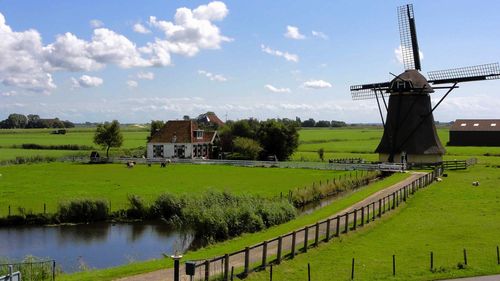Exploring the Role of Cultural Identity in Britain: What it Means to be British
Cultural identity is an essential aspect of any society, and Britain is no exception. A country with a rich history spanning over centuries, the UK’s identity has evolved drastically, and today it is multicultural and diverse. The definition of what it means to be British is constantly changing and shifting, influenced by factors such as politics, geography, economics, and demographics.
The Multicultural Identity of Britain
The UK is home to numerous races, cultures, religions, and ethnic groups. The British identity is inclusive, and the country welcomes people from all walks of life. With immigrants making up a significant portion of its population, the UK has become a melting pot of different cultures. This has led to a diverse and multicultural society, where people of different backgrounds coexist harmoniously.
The rise of the Black Lives Matter movement and the ongoing discussions around race and identity have further highlighted the significance of cultural identity in Britain. Many individuals with diverse backgrounds face difficulties in finding their place in society, and as such, cultural identity is more important than ever in today’s world.
British Identity through the Ages
Britain’s cultural identity has evolved through the ages. The UK has seen many different peoples and cultures come and go throughout its history. The Romans, Vikings, and Normans all played a significant role in shaping the UK’s identity, and their influence can still be seen in British society.
In modern times, the UK has faced many changes that have contributed to shaping its identity. Immigrants from former colonies of the British Empire, such as India, Pakistan, and the Caribbean, played a significant role in shaping British society and culture. The development of the welfare state after World War II and the rise of pop culture and music further influenced the UK’s identity.
Cultural Identity and Politics in Britain
Politics plays a significant role in shaping cultural identity in Britain. Brexit, for example, saw the UK vote to leave the EU, leading to discussions around what it means to be British. Brexit highlighted the significant cultural divide between the British people, with the country split almost evenly down the middle on the issue.
The Scottish Independence Referendum also contributed to shaping cultural identity in the UK. Scotland’s bid for independence highlighted the cultural and political differences between Scotland and the rest of the UK. The referendum sparked discussions about the UK’s identity and the need for more devolved powers for individual countries within the union.
Conclusion
The UK’s cultural identity is diverse, complex, and constantly evolving. It is shaped by many factors, including history, politics, economics, and immigration. Understanding cultural identity in Britain is crucial in developing a more inclusive society that celebrates diversity and promotes harmony between different cultures.
(Note: Do you have knowledge or insights to share? Unlock new opportunities and expand your reach by joining our authors team. Click Registration to join us and share your expertise with our readers.)
Speech tips:
Please note that any statements involving politics will not be approved.
